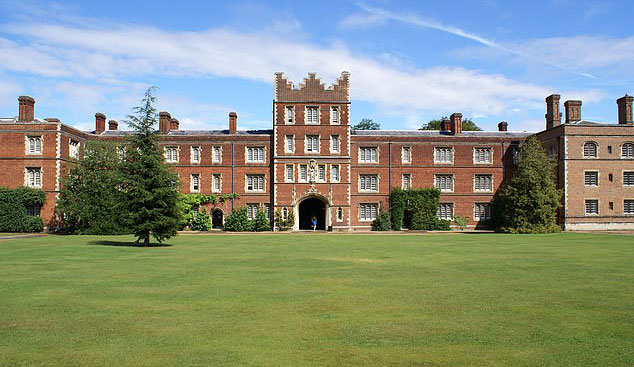Dispute swirls over memoriam to Slave Investor at Jesus College, Cambridge

An ecclesiastical court is expected to meet early February, to deliberate over a decision by the of University of Cambridge, to remove a memorial located in the Jesus college chapel, to one of its most significant benefactors,Tobias Rustat, as a result of his links to the slave trade.

It is therefore concluded that Investors would have been fully aware of the company's activities and how they made their profits.

Stephen Hemsted and his three brothers, Rustat's tenth great nephews, have lodged a complaint with the college and are arguing that the Company was not the source of money he gave to the institution.
They told The Times that they regarded Rustat as a 'distinguished ancestor' and added there was 'no justification' for removing the memorial.
They are maintaining that Rustat made just 1.3% of his wealth as a result of his investments in the Royal African Company,RAC, and that he gave away as a philanthropist towards the end of his life.
Rustat's name name appears on the charter for RAC and he donated £400 into the company - the equivalent of almost £100,000 today.

Rustat's memorial was commissioned by the man himself and is prominently displayed in Jesus College's chapel.
The memorial's inscription says he served 'King Charles the Second' with 'all duty and faithfullness [sic]'.
It adds that he 'disposed in his lifetime in workes of charity and found the more he bestowed upon churches, hospitalls, universities and colleges and upon poor widows and orphans of orthodox ministers, the more he had at the year's end.'
Alleyne said that moving the Rustat memorial, “was not about erasing or changing history, rather, its about respect for the young, diverse community using the chapel today. “His name is on our donor wall which is in the cloisters in the middle of the college. It will always be on the donor wall,” she told the Guardian.
“It’s the fact that it’s a chapel and it’s a place of worship. In this day and age, in this community that we have in our chapel, with our very diverse student body, are you really saying to young people as they come in, this is what part of being in a place like Cambridge is about,” she questioned?
However, the college needs the permission of the Church of England to move the memorial because it sits in a Grade I listed religious building.
Described as one of the most important pieces of funerary art in the UK, the Rustat memorial at Jesus College was created by the studio of the Anglo-Dutch sculptor Grinling Gibbons. The decision to it was arrived at following examination by a legacy of slavery working party (LSWP), made up of academics, students and the college archivist.
The review process began in May 2019 with the setting-up of the Legacy of Slavery Working Party (LSWP). The LSWP – eight academics, two student representatives and the College archivist – published an interim report in November 2019 and an update in November 2020.
The update stated that Tobias Rustat’s name should remain displayed on its donor wall, but “to make changes wherever he is explicitly celebrated in College”.
In December, the College served public notice of its application to the Diocese of Ely to relocate the Chapel memorial to its benefactor and last month the college began a process of considering the views of the various heritage advisory bodies that the Diocese had consulted as part of the Faculty application process. This includes options for relocating the memorial to a more fitting educational space within the College.

“A society’s historical baggage and its modern-day challenges are inextricable. Understanding our past and shaping our future are not separate projects. The University of Cambridge is exceptionally well placed to undertake both of them.
“The legacies of enslavement form a part of who we are today, and inform what we wish to achieve. We can never rewrite history, or do away with our heritage, but we can try to address prevailing inequalities. This process begins through greater self-knowledge and self-reflection.”
Lawyers have been hired on each side and the case will be heard on 2 February in the consistory court of the diocese of Ely in a hearing expected to last two to three days.”
